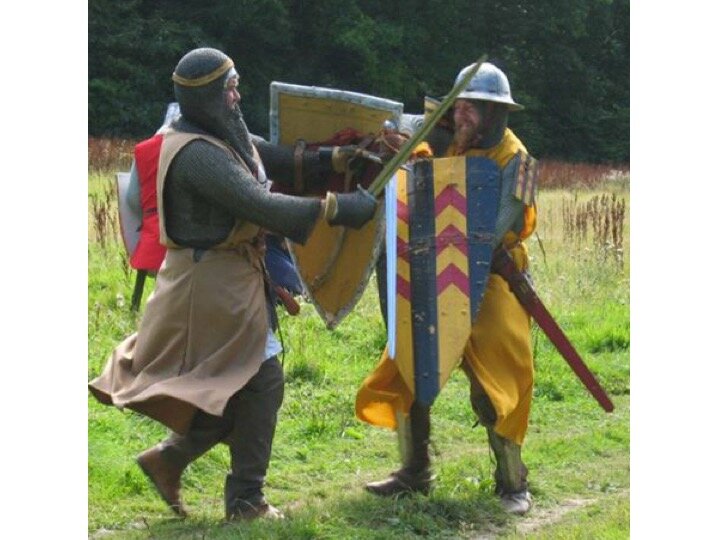Historical places to visit in Worcestershire
Some of the scientists who worked at the Telecommunications and Radar Establishment in the 1940s Photograph: malvernmuseum.co.uk
Worcestershire is famous for a number of historical things but, at the time, one of the least known ones was the World War II Telecommunications and Radar Establishment in Malvern. The scientists working there were fighting in the war but, not being in uniform, and in living and working in great secrecy, were not recognised by the locals amongst whom they lived for the vital work they were doing. Read more about Worcestershire’s Telecommunications and Radar Establishment and visit the Malvern Museum of Local History to learn about this, and much more.
And, also during World War II, the Drakelow Tunnels were built in Kidderminster in 1941-42. Another secret place for fighting the war, these were initially a ‘shadow factory’ for the car company, Rover (an example of a government /commercial company collaboration to produce, for example, military vehicles and equipment such as aircraft engines). Along with 12 other sites, the tunnels were converted to nuclear bunkers as regional seats of government, and were upgraded and re-designated as regional government headquarters in 1980 until decommissioned in 1993.
Almost 300 years before this, Worcestershire was the place where the last fight of the English Civil War was fought in the Battle of Worcester, 1615. Visit The Commandery in Worcester, used by Charles II as his headquarters before this battle, to find out more.
The Commandery, Worcester. Photograph: britainexpress.com
And whilst in Worcester, visit the Grade I listed Guildhall dating back to at least the 18th Century: King George III visited in 1788 and is said to have described the Assembly Room as ‘a handsome gallery’. Formerly Worcester’s court rooms, the Guildhall houses the current council chamber and mayor’s parlour.
The Guildhall, Worcester. Photograph: worcesterguildhall.co.uk
And visit a re-enactment of the 1265 Battle of Evesham on 7 and 8 August 2021 as part of the Medieval Festival in Evesham, which includes both displays and examples of 13th Century living.
A scene from the re-enactment of the Battle of Evesham. Photograph: The battleofevesham.co.uk
You can find out more about the Battle of Evesham, and see a wide variety of exhibits from pre-history and the 20th Century, with an emphasis on the development of Evesham, at The Almonry, Evesham.
The Almonry, Evesham. Photograph: almonryevesham.org
A visit to Hartlebury Castle will provide you with various opportunities: find out about Worcestershire’s history in the county museum; learn about the people who used to live in Hartlebury Castle; and enjoy hands-on displays as well as the grounds of the castle.
Hartlebury Castle. Photograph: hartleburycastle.com
Consider, also, a visit to the Malvern Museum of Local History where you can find out about the geology of the area; some of the pre-historic and Roman influences; the area’s medieval history; the impact of ‘water cures’ from Malvern waters and how the area changed in the Victorian era because of this; and the changes in the 20th Century brought about by two world wars, and by both Santler cars (built in Malvern Link these were possible some of the first petrol-powered cars) and Morgan cars, which still flourishes today.
A Santler car, built in Malvern, and amongst the first petrol-powered-cars. Photograph: britainbycar.co.uk
If you missed our blog on Ten Things To Do In Worcestershire, then have a read to fill your days with other things to do.








